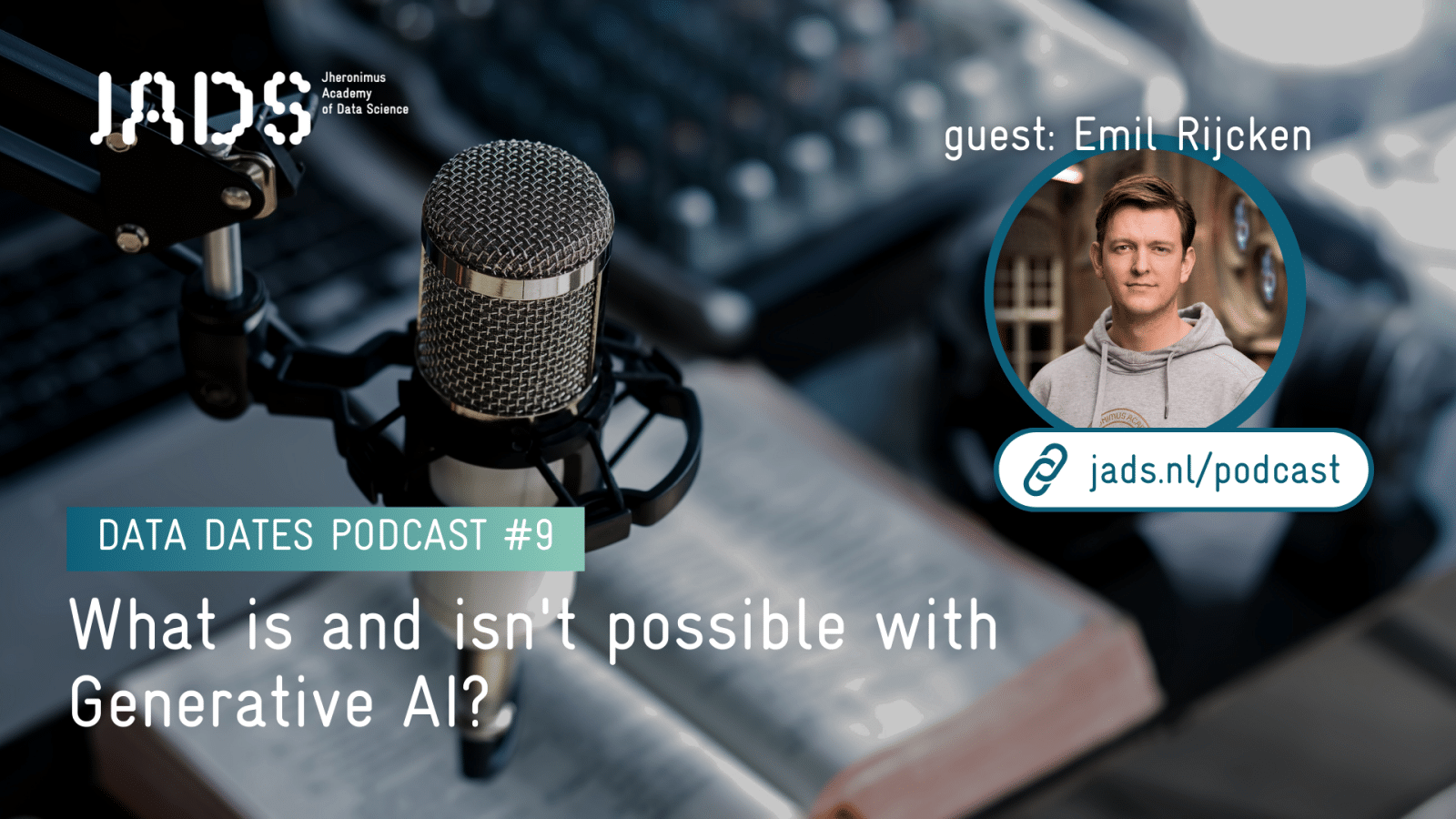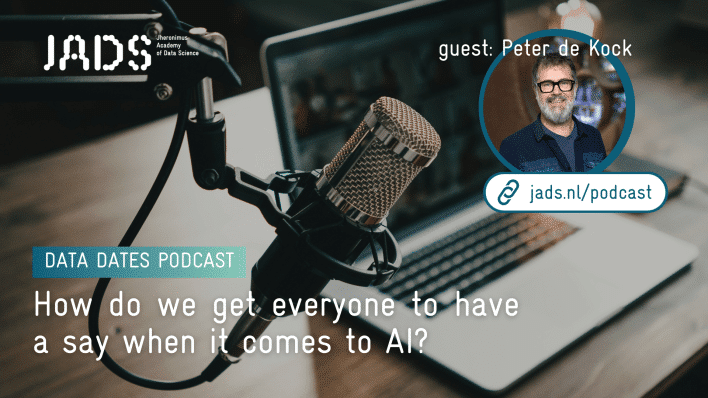Discover Generative AI with Emil Rijcken in the Data Dates Podcast
Posted on
Data Dates is a JADS podcast that makes data, data science and AI comprehensible. In the latest episode, we dive deeper into generative AI and large language models. While these subjects are in the news a lot, few people really understand how these models work. Fortunately, hosts Huub and Edwin have teamed up with Emil Rijcken, a fourth-year PhD candidate at JADS, to tell us more about this topic.
Natural Language Processing
Emil has focused his research on Natural Language Processing (NLP), a field that has become increasingly well known in recent years thanks to breakthroughs such as ChatGPT. NLP as a technology encompasses everything that involves language. Emil has focused specifically on automatic text classification, such as labeling text in electronic patient records, in collaboration with hospitals. He explains that while computers are good at processing numerical data, they have difficulty understanding language, making it necessary to represent language in a numerical way for machine learning models.
Understanding language with ChatGPT
Generative AI, such as ChatGPT, has made huge leaps forward in recent years, with Google’s Transformer architecture playing a crucial role. These large language models are trained on enormous data sets and are able to understand which words and phrases belong together based on context. Although generative AI is primarily known for generating text, such as chatbots, Emil emphasizes that the applications are much broader than commonly understood.
ChatGPT for coming up with recipes
He shares his own experiences using ChatGPT, both for research and in everyday life. Emil uses it as a tool for writing emails, as a coach to improve his own writing style and even for coming up with recipes based on the ingredients he has left in his fridge. He points out that while generative AI can be useful, it is important not to think of it as a perfect solution, but rather as a companion to human creativity and reasoning.
Ethical and social issues
Beyond discussing the possibilities of generative AI, Emil also addresses some ethical and societal issues, such as the impact on our jobs and the energy consumption of these models. He emphasizes that while the future is uncertain, there are opportunities for human collaboration with AI to work more efficiently, and also that we can be optimistic about the benefits these technologies can offer.
All in all, Emil offers a fascinating glimpse into the world of generative AI and its possibilities. Want to learn more about this topic and other dimensions of data science and AI? Then subscribe to Data Dates, powered by JADS.
Attention: The Data Dates Podcast is in Dutch only



